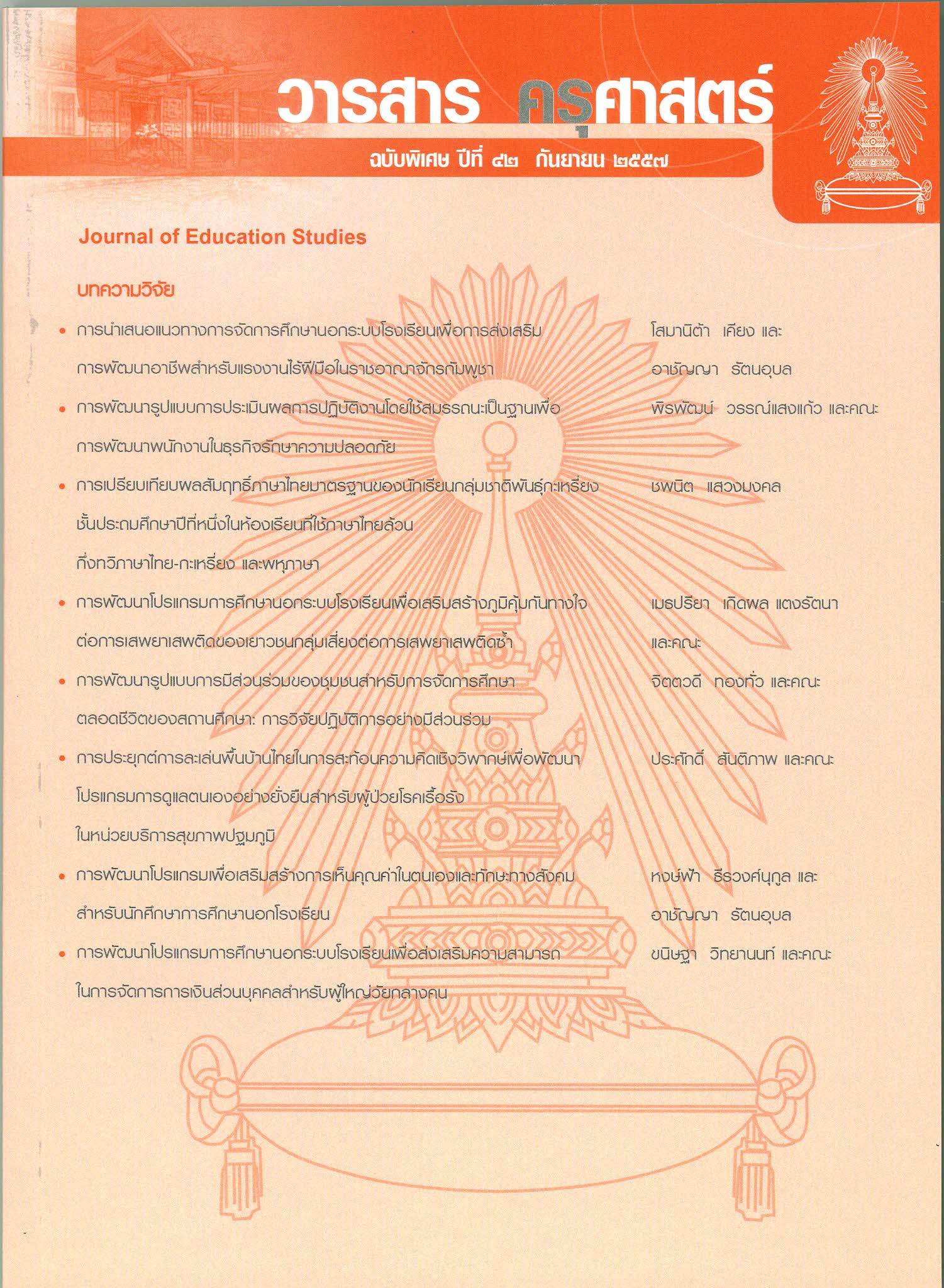The Development of A Program to Enhance Self-Esteem and Social Skills of Non-Formal Education Students
Keywords:
PROGRAM DEVELOPMENT, SELF-ESTEEM, SOCIAL SKILLSAbstract
The study aimed to: 1) analyze situations in terms of problems and needs in enhancing the self-esteem and social skills for non-formal education students, 2) develop and implement the program, and 3) study the relevant factors that support and limit the implementation of the program. The research and development design was divided into 4 phases: 1) Planning, by survey research, using interviews to collect information from administrators and teachers and using questionnaires to collect information from 396 non-formal education students in the Bangkok area; 2) Design of a planned program and program Implementation: the nature of the proposed research was quasi-experimental, using one-group: pre-test and post-test were designed for 30 non-formal education students; 3) Evaluation and Accountability were studied to measure the appropriateness of the program and relevant factors that supported and limited the implementation of the program through a focus group discussion; 4) Develop the planned program by using the findings of the research.
The results were as follows: 1) Problems of the non-formal education students related to their self-esteem included attitudes about self-esteem awareness; whereas problems with social skills were (1) Critical thinking, decision making, and creative problem solving; (2) Emotional and stress management; and (3) Building meaningful relationships. The learning needs and required knowledge, skills and attitudes were based upon the identification of all of the problem areas. 2) The program consisted of the following components: planning; design and implementation; and evaluation and accountability. After the experiment, the experimental groupûs scores were significantly higher than before the experiment at a significant level of .05 in three aspects, namely knowledge, attitude, and skills. 3) Relevant factors which supported the implementation of the program were both extrinsic motivation---Non-formal Education Policy, facilitators, opportunity for experience reflection, and intrinsic motivation---moral awareness, unconditional worth, love and personal growth. A limitation might be the lack of well-trained facilitators.




